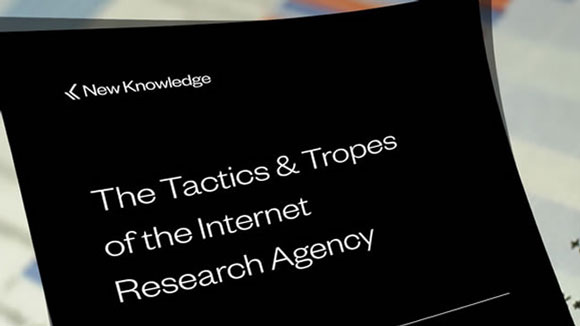Voting Rights and Voter Suppression: The Latino Experience
Today, perhaps no single issue is more important to African-Americans, Latinos, and other communities of color than protecting the right to vote for all Americans.
UnidosUS has long been concerned with and connected to voting rights expansion. In 1975, the organization played an instrumental role in ensuring that the Voting Rights Act included protections and voter language assistance for limited-English-proficient voters. We led efforts to reauthorize those provisions in subsequent reauthorizations of the Voting Rights Act in 1982, 1992, and in its final reauthorization in 2006.
Increasing the number of registered Latino voters has become a top priority for our organization and our community—and the reason is devastatingly clear. Of the more than 58 million Latinos in the United States (representing nearly one in five residents), Latinos make up 1 in 10 voters. It is clear that Latinos are severely underrepresented in the American political process.
This alarming statistic motivated UnidosUS to focus on turning eligible permanent residents into citizens, citizens into registered voters, and registered voters into actual voters. Since 2008, we have registered more than 700,000 new voters and reached hundreds of thousands more through our voter education and mobilization programs.
Like our brothers and sisters in the African-American community, we know that voter suppression laws, and other strategies to diminish our political power, imperil not only our right to vote but American democracy as we know it.
The raft of voter suppression laws and policies passed in the wake of the Supreme Court’s evisceration of the Voting Rights Act have taken a severe toll on Latino voters. One in three Latino voters lives in areas that were previously protected under the Voting Rights Act. Our community is largely concentrated in Arizona, Florida, and Texas, states where voter suppression has been an historical problem.
Voter purges and voter ID laws are disenfranchising tactics of notable concern to us, especially given the fact that nearly two-thirds of states have voter ID laws on the books. In 2014, 14 percent of registered Latino voters said that they did not vote because they believed they did not have the right ID.
A 2018 poll released by the Public Religion Research Institute documented the harm of voter suppression laws on Latino voters. Latino voters are three times as likely to be told they have improper ID as white voters. They are twice as likely to be incorrectly told that their names are not on the voting rolls. And they are three times as likely to have trouble finding their polling places on Election Day. It is no wonder that 60 percent of Latinos surveyed in the poll believe that eligible voters being denied the right to vote was a major problem in 2018 and will likely remain a serious problem in 2020 as well.
The recent—and constant—demonization of undocumented people and the Latino community as protagonists in the debunked voter fraud myth is nothing more than a deliberate attempt to suppress the vote of eligible citizens of color. The Trump administration’s own attempt to prove widespread voter fraud was short lived. The now-disbanded voting integrity commission did not find evidence of rampant voter fraud and could not corroborate claims of illegal voting. To be clear: just as there is no evidence of widespread voter fraud in this country, there is also no evidence that millions of unregistered immigrants are voting in American elections. But despite overwhelming evidence to the contrary, proof of citizenship laws in states like Arizona have resulted in thousands of eligible voters being denied the right to vote. We will not allow law-abiding men and women to be denied the greatest tool we have in our democracy. To right the wrongs, UnidosUS will continue registering and mobilizing voters, especially the nearly one million Latinos who are turning 18 each year.
In the short term, we will continue to educate voters about their rights and what recourse they have if their rights are violated. UnidosUS has partnered with our sister organization, the National Association of Latino Elected and Appointed Officials (NALEO), on a toll-free hotline (1-888-VE-Y-VOTA) to assist voters with voting day information and allow people to report incidents of voter intimidation or suppression.
In the long term, UnidosUS will continue to advocate alongside the National Urban League and sister civil rights organizations for the full restoration of the Voting Rights Act of 1965. We will not rest until the Act is restored to its pre-Shelby version—a version that always enjoyed strong bipartisan support. During its last reauthorization, the Act passed with an overwhelming vote in the House and a unanimous vote in the Senate.
UnidosUS wants to add its voice to the chorus of advocates and activists appealing for a change from the current political paradigm that prioritizes preventing Americans from voting to one that encourages expanding the electorate. It makes no sense to make it more difficult for people to vote when—even during heightened elections seasons such as the 2018 midterm elections—less than half of voters voted. We strongly support measures such as automatic voter registration, same day registration, and other policies that have proven highly effective in mobilizing traditionally underrepresented groups such as young people and communities of color.
Strengthening voter participation and ensuring that all communities take their rightful place in the political process are key to protecting and expanding the progress this country has made since the Voting Rights Act was passed more than fifty years ago.


 Equality Index
Equality Index  Senate Report
Senate Report  2020 SOBA Essays
2020 SOBA Essays  2019 Report
2019 Report 